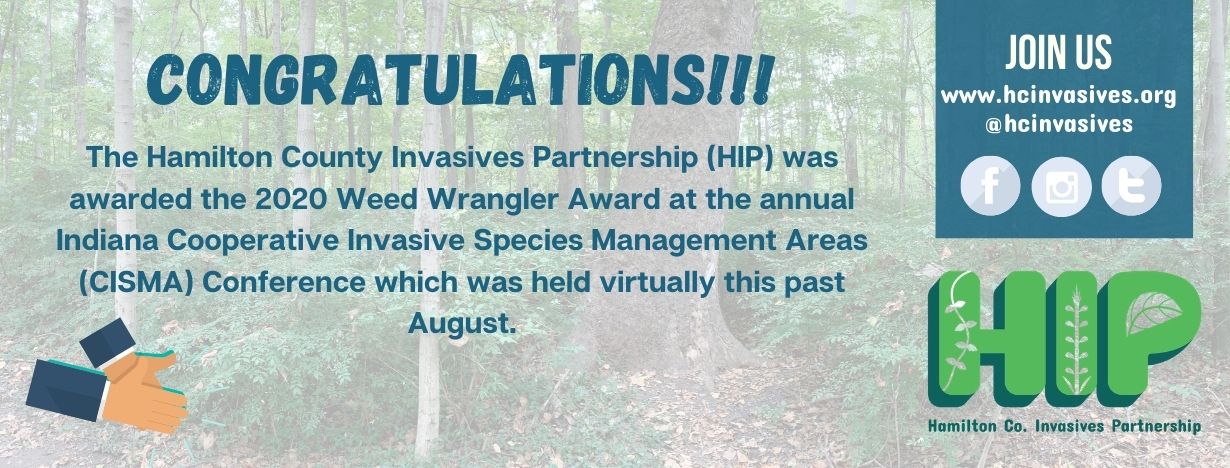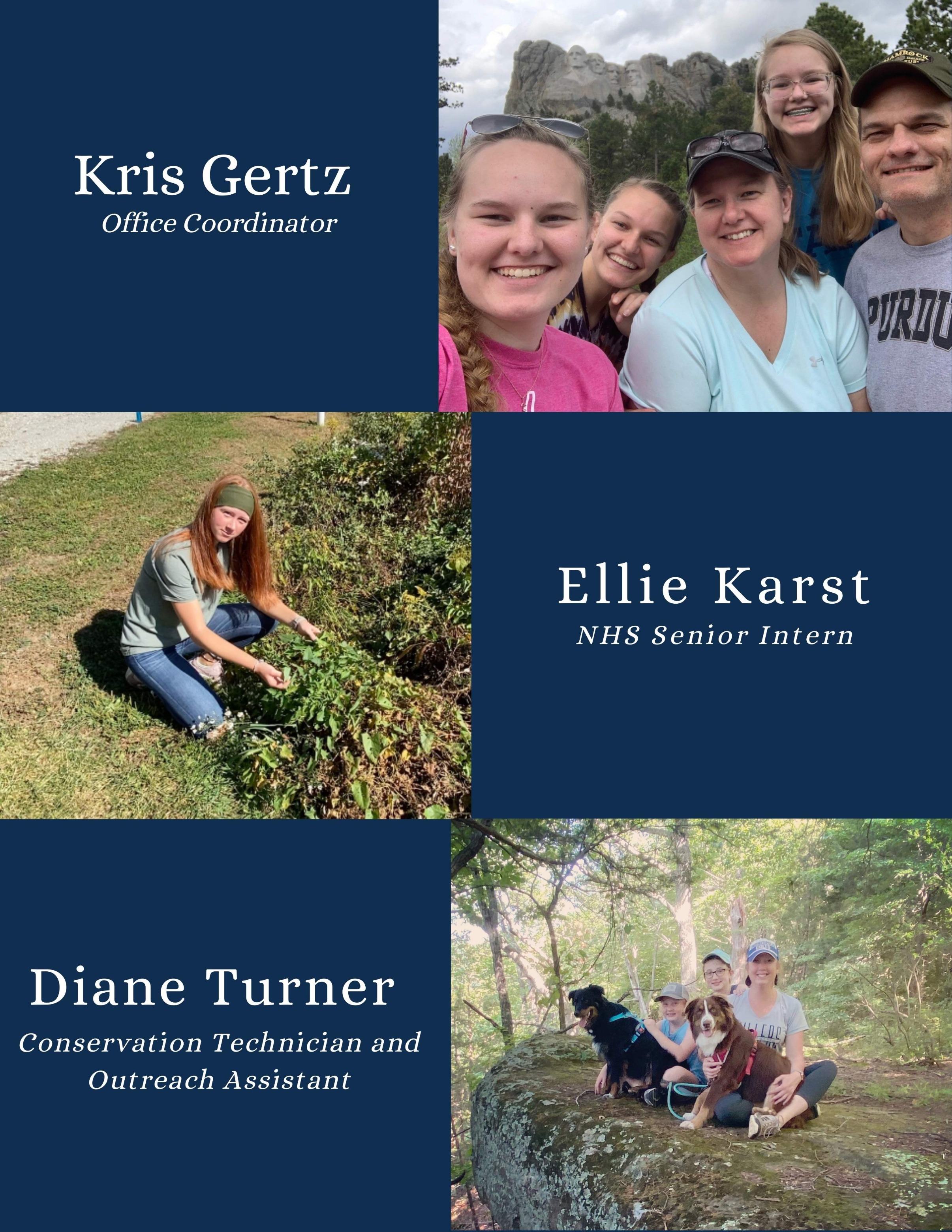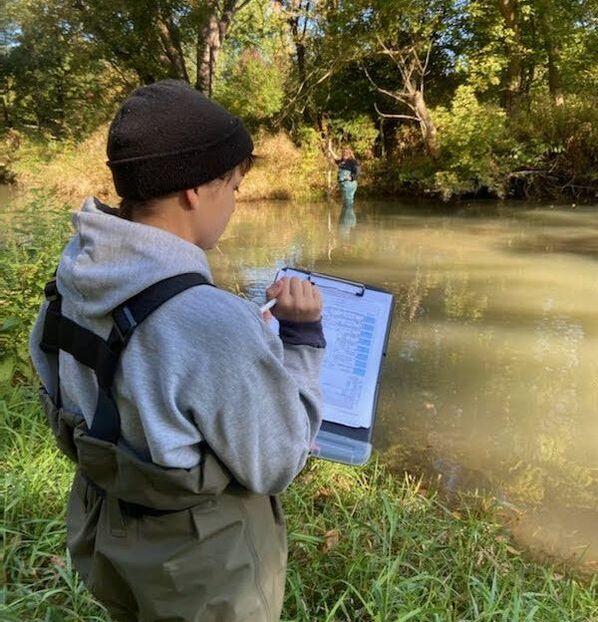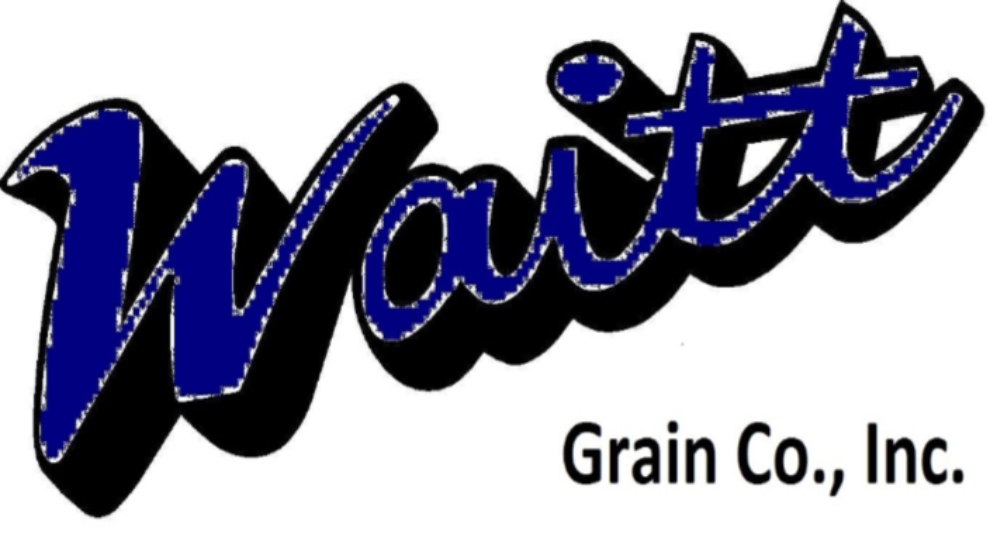| |
In this issue: -
Stony Creek Feasibility Study -
Invasive Species: English Ivy -
Fall Lawn Tips -
HCSWCD Staff Updates -
Indiana Conservation Partnership -
Fall 2020 Conservation Choices -
Autumn Leaves -
Persimmon Pie -
Affiliate Membership | | | | | Upcoming Events: HCSWCD December Luncheon December 17, 2020 Indianapolis, IN January 12-15th, 2021 February 18, 2021 | | | |
Stony Creek Feasibility Project Update Stony Creek feasibility study was brought forth through our office to investigate whether alterations to Stony Creek’s past have created some natural resource concerns and what potential solutions might be necessary to address any concerns of erosion, flooding, wildlife habitat, and quality of place. Over the past decade, Stony Creek has gone through some tremendous barriers and changes as any stream does in its lifetime. The difference is that in this case the alterations were all done by us and not natural changes typically seen in rivers. We will be holding a public meeting and live virtual event on December 2, 2020 in the late afternoon/early evening and encourage all to join us for this event. We will have an in-person portion at the Annex building on the Fairgrounds and a virtual option online. More details of this event will be available soon. | | | | | |
Invasive Species Spotlight - English Ivy English ivy, or Hedera helix is an evergreen vine found in landscaping, yards, and invasively creeping across forest floors. This plant originates in Europe and was brought over to North America in the 1700s by colonial settlers. English ivy is an aggressive invader of or native forests, so it is imperative that we manage it. Uncontrolled, English ivy outcompetes and covers the native understory and climbs trees, eventually killing them. | | | | | |
Treating Your Lawn Right Now Could Pay Off Big This Spring! Fall has arrived our minds might be turning to things we need to do around the home to prepare for winter, but that may not necessarily include our lawns. People are prone to think that the grass has done its thing all year, and now will be going into a dormant period and not really need much attention until next growing season …Spring. However, does it really stop growing completely during the colder months? In reality, cool season grasses (which account for most lawn mixes locally) do continue to grow underground, even during the winter, although much more slowly. | | | | | |
 | | | | | Hamilton County SWCD Welcomes New Staff | | | |  | | | | Congrats Taylor! Taylor Wilson has taken on the title of Urban Conservation Technician in place of Andrew Fritz. Taylor worked at the SWCD as the Conservation Technician and Outreach Assistant for 11 months before transitioning to this new position.
Since beginning work as the Urban Conservation Technician in August, Taylor has been helping coordinate the Hamilton County Invasives Partnership (HIP), working as the Co-Chair of the HIP Technical Committee, attending site visits, and working on the SWCD urban agriculture programs. | | | |  | | | | | | |
Getting to Know - Indiana Conservation Partnership Did you know that Hamilton County Soil and Water Conservation District is one of the eight Indiana agencies and organizations who share the common goal of promoting conservation in the Indiana Conservation Partnership? The primary customers of the partnership are Indiana’s farmers who are recognized as national leaders in our collaborative efforts to incorporate soil health systems into conservation planning, farm management and educational activities. | | | | | |
Fall 2020 Conservation Choices - Easements Landowners may grant conservation easements out of a personal desire or under a public policy to keep specific land in its current use, preventing its further development. In other words, a conservation easement is a legal agreement to stop an area of land from being developed in the future. Also known as a conservation restriction, or conservation agreement, a conservation easement is a voluntary, legal agreement that limits uses of the land in order to protect its conservation values. However, it has become the policy in many states, including Indiana, to preserve lands indefinitely, not only for recreation, maintenance of wildlife, and scenic value, but also for maintenance of agriculture and of a way of life. | | | | | |
Autumn Leaves: A Valuable Soil Conditioner Autumn leaves don’t have to become trash. They easily can be turned into valuable soil-enhancing organic matter. Many communities compost their leaves and make the finished compost available to their citizens. Compost improves soil aeration, moisture retention and drainage, and nutrient-holding capabilities. For those who do not have the luxury of yard waste pick up, there are several ways to manage tree leaves at home. Many gardeners already know the value of recycling plant material. Dry leaves can be plowed or tilled under in the vegetable or annual flower bed in fall to provide a source of organic matter. Shredding the leaves and mixing in the soil will speed the breakdown so that the leaves will not be visible by spring. Tree leaves can be recycled directly on the lawn. Use your mulching mower or shredder/vacuum to break dry leaves up into smaller pieces. | | | | | |
| Persimmons - A rarely planted native treasure. | Persimmons are ready for harvest during the fall months. You may find them in limited quantities in supermarkets as well if you are not lucky enough to have access to a persimmon tree. However you manage to get your hands on this lovely orange, thin-skinned native fruit, consider giving this pie a try. | | | | | | |
Thanks for reading! Watch out for our Winter newsletter early in 2021. Have a safe and healthy holiday season! | | | |
Affiliate Members Affiliate membership dollars support conservation and education in our county! Join us in thanking these great supporters! We have updated our affiliate levels. Visit our affiliate membership page to see how you can support your SWCD. Friend of Conservation Kim Gauen Jennifer Hensley Terry Luley John South Beth Williams Craig Wind Conservation Hero Karen Hymbaugh
Steve Hilger
Becks Superior Hybrids Champion of Conservation | |  | | | | |
| | | Hamilton County Soil & Water Conservation District 1717 Pleasant Street | Noblesville, IN 46060 317-773-2181 | soil.water@hamiltoncounty.in.gov | | | | | |
| |